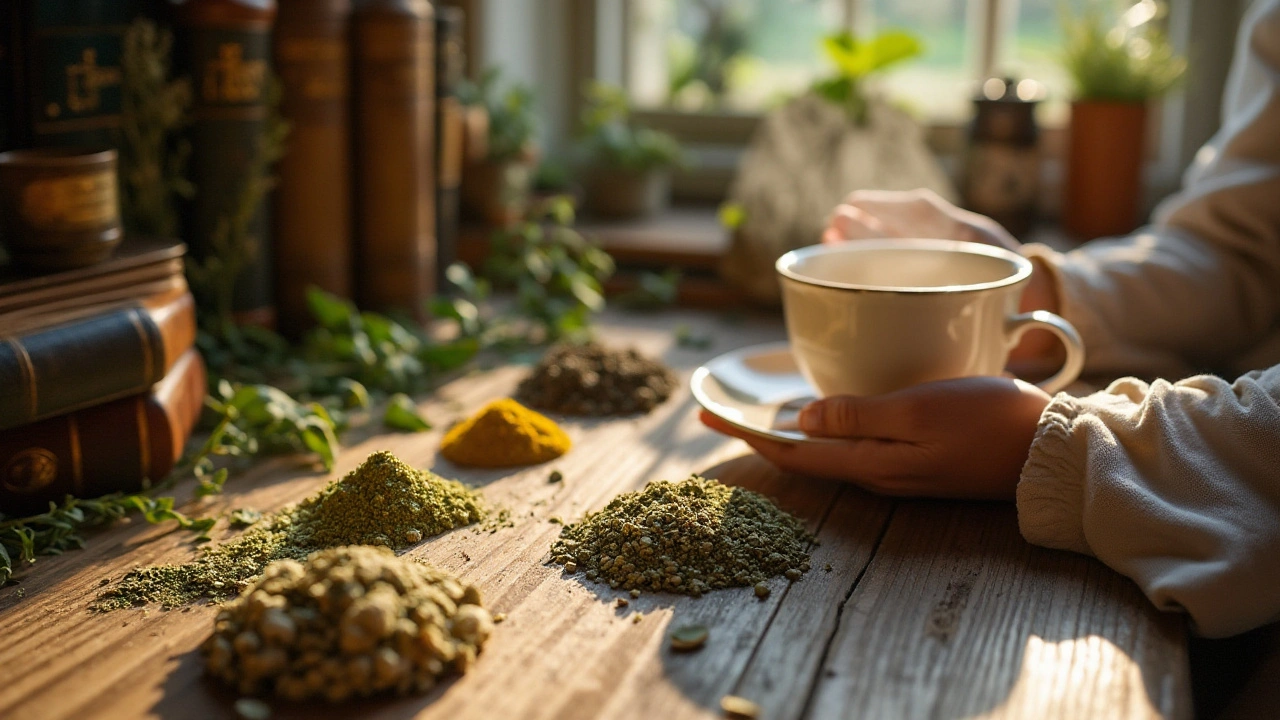Chirata (Swertia chirata): What it does and how to use it safely
Chirata is a very bitter herb used in traditional medicine for fever, digestion, and liver support. You’ll recognize it by the sharp taste—that bitterness often signals active compounds that affect digestion and metabolism. If you’re curious about trying it, here’s a clear, practical guide without the fluff.
What Chirata is and what it may help with
Botanically called Swertia chirata, this plant contains bitter compounds like swertiamarin and amarogentin. People use Chirata as a digestive bitter to stimulate appetite and digestion, for occasional low-grade fevers, and as a traditional liver tonic. Lab studies show antioxidant and antimicrobial activity, and small clinical work hints at blood-sugar and liver-support effects—but evidence is still limited, so treat those findings as promising, not proven.
Chirata is not a quick fix. Think of it as a supportive herb: it can help digestion after heavy meals, may ease mild stomach discomfort, and is sometimes part of broader herbal plans for metabolic or liver health.
How to take Chirata and safe dosing tips
Chirata comes as a dried herb, tea, tincture, or standardized extract in capsules. A simple way to try it is a weak tea: steep 1–2 grams of dried herb in hot water for 5–10 minutes. For extracts and capsules, follow the product label. Typical supplement extracts are often taken once or twice daily; many products list 200–500 mg per dose. Start low and watch how you feel.
Watch for common effects: the bitterness can cause nausea in some people, and a strong dose may upset your stomach. If you feel lightheaded or unusually tired, stop and check with a clinician.
A key safety note: Chirata may influence blood sugar. If you take diabetes medications, monitor levels closely and talk to your prescriber before adding Chirata. Also avoid starting it during pregnancy or breastfeeding due to limited safety data. When using alongside prescription drugs, consult your healthcare provider—there’s not enough research to rule out interactions with strong medications.
Pick quality products: choose extracts from reputable brands that list the plant part used and a standardized active marker (like swertiamarin). Avoid bulk powders with no sourcing info. Store the herb in a cool, dry place away from direct sunlight.
If you want related reading, our site covers similar supplements like Caralluma, Black Horehound, and Wormseed—those pages can help you compare effects and safety when exploring natural options.
Bottom line: Chirata can be a useful bitter herb for digestion and traditional liver support, but use it cautiously, follow label dosing, and check with your clinician if you take meds or have health issues. Small steps and smart sourcing make herbal work safer and more effective.
- Colin Hurd
- Sep, 7 2024
- 17 Comments
Uncover the Incredible Health Benefits of Chirata: The Ultimate Supplement Guide
Chirata is an incredible natural supplement known for its wide array of health benefits. This article explores what Chirata is, its health advantages, ways to incorporate it into your daily routine, and some essential tips from experts. Discover why this age-old remedy is becoming a go-to option for health enthusiasts.

